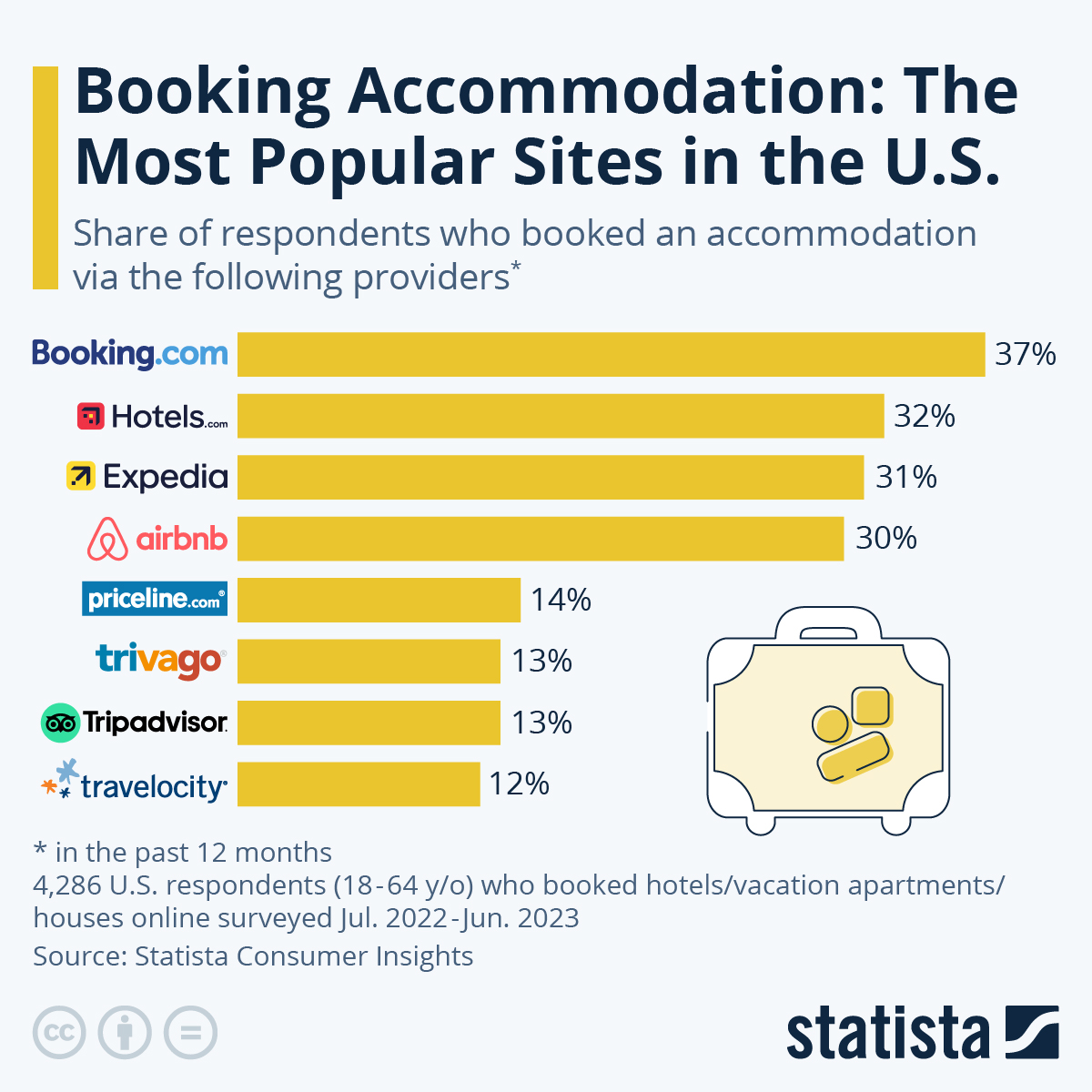While booking overnight stays via a travel agency or the website of a specific accommodation provider is still a valid option for many U.S. Americans, the boom in booking websites like Booking.com, Hotels.com or Airbnb has transformed the hospitality sector over the past couple of years. Even though providers like Airbnb face increased pressure from critics and governments due to short-term rentals allegedly exacerbating the cost of living in popular tourist destinations, these services are still a sizable part of the tourism industry in the United States.
Data from our Statista Consumer Insights shows that 37 percent of respondents who booked accommodations online in the past 12 months used Booking.com. Coming in second and third are Hotels.com and Expedia with 32 and 31 percent, respectively. The gap between Airbnb in fourth place with 30 percent and fifth-ranked Priceline with 14 percent hints towards a possible consolidation of the online accommodation industry. Interestingly, Priceline is part of Booking Holdings, which also owns Booking.com and has a larger market share than readily apparent.
According to Statista Market Insights, hotels are still crucial revenue drivers in the travel & tourism market, which contains package holidays, camping, cruises, hotels and vacation rentals. Airbnb and other short-term rental providers belong to the latter category, which is estimated to have generated $81 billion worldwide and $19 billion in the United States alone in 2022.





















